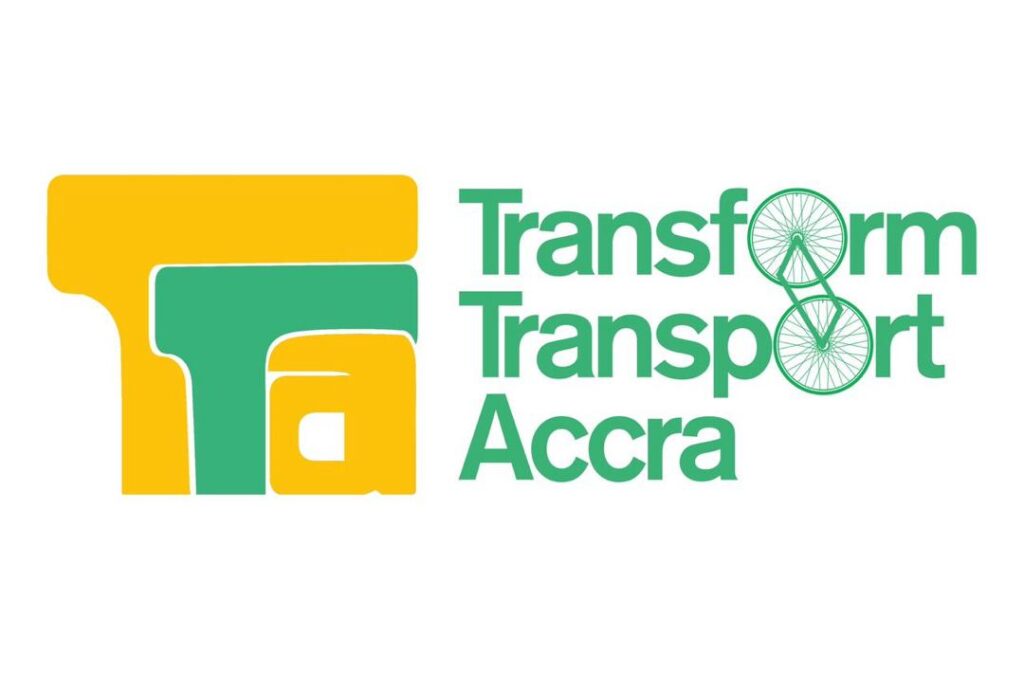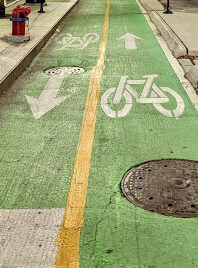

Citizen-led campaign to advocate for accessible, affordable, and sustainable public transport in Accra
Background
Accra, the vibrant capital city of Ghana, stands as proof of Ghana’s rich history, cultural diversity, and dynamic urban development. Nestled along the Gulf of Guinea on the Atlantic coast, Accra also serves as the political, economic, and cultural heart of the country. Its evolution over the centuries has shaped it into a bustling metropolis with a unique blend of tradition and modernity. Accra is a key economic hub in West Africa, hosting financial institutions, businesses, and government offices. Its central role in trade and commerce is symbolised by bustling markets like Makola Market, where the vibrant exchange of goods and services reflects the city’s economic vitality.
The city’s skyline is marked by a mix of modern skyscrapers and colonial-era architecture, showcasing the amalgamation of tradition and progress. Accra has witnessed urban development and infrastructure improvements, with ongoing efforts to address transportation challenges and enhance public services.
Although the multiethnic city is considered one of the most dynamic and safest cities in Africa, many residents encounter challenges with their daily commute. The majority of Accra’s workforce lives outside the city, and during business hours, the population of the CBD is thought to increase by about two million people. Due to the heavy traffic caused by the huge number of people trooping in from the city’s outskirts, both individuals and goods are unable to move during peak hours. Additionally, about half of Accra’s inhabitants walk to work, and they’re confronted with several challenges due to a lack of designated walkways. While there is an urgent need for a mass rapid transit system to cater for the mobility needs, major financial investments into addressing accessibility and urban mobility needs have failed miserably., T to mention one of significance, in 2007, the World Bank and GEF Trust gave Ghana funding to a tune of USD 52 million which has yielding very little results.
Project Objective
The objective of our campaign is simple;, we want to build a collective of citizens who are first aware ofn the full scale of our transport challenge, then guide a city-led approach for the demand of better transport alternatives in Accra, while we admit that a working mass rapid transit system is viable and worth the focus of a citizen-led campaign, in response to data from the Ghana Statistical Service and the Ghana Urban Mobility and Accessibility Project and with indication that walking has a higher modal split number, our campaign will push for designed and maintained network of sidewalks and cycle lanes that allow for trips undertaken on foot or by bicycle. This will promote active mobility, allow us to live closer to nature, reduce air pollution and ensure financial sustainability, as active mobility infrastructure is less costly and easier to manage.
Project Summary: To advocate for improved transport alternatives in Accra, addressing infrastructure challenges and promoting sustainable mobility solutions
Success Metric I: Government commitment to invest into active mobility infrastructure, particular mention in the manifestos of political parties
Success Metric II: Before election 2028, active mobility infrastructure of distance covering Aburi-Madina-37 to the central business district of Accra
Success Metric III: In the long term, with proper road infrastructure in place, the City has a thriving EV-powered mass transit system accompanying active mobility infrastructure
Campaign Focus: Greater Accra Region, Ghana
Proposer: The people of Accra
Starting Date: 31 January, 2024
Project Duration: 10 months
Project Description
The first part of the project, which we recognize to be very critical, is a webinar series on urban transport, its challenges and opportunities. The webinar held within a span of four months will begin a dialogue between different stakeholders. We will have audiences and speakers from the transport sector, the Accra Metropolitan Assembly, academia i.e the University of Ghana Center for Climate, development agencies, like the Dutch Embassy and the Swiss Development Cooperation, OECD, WRI Africa, Greater Accra Cycling Association, Informal Vendors and Hawkers Association of Ghana, Youth Groups like Freedom Skatepark Ghana, Youth Climate Council Ghana, Youth-NREG, and Civil Society like Imani Ghana, Bloomberg Initiative on Global Road Safety and C4O Cities. The webinars will help refine the advocacy strategy, unravel concerns and identify ways for navigating around them. One physical focus group discussion will also be held with sections of the project communities. This will follow with a cycling tour with the Greater Accra Cycling Association. While engaging in the first phases, there will be at least three media appearances to talk about the transport challenges in Accra and how to transform Accra’s transport challenges. The last phase of the project is a full blown digital campaign highlighting daily transport challenges, how people commute to from one place to the other everyday.
Project Team Roles
- Volunteers – Sustainability Week Accra
Communication Approach
- Link to the economy
- Link to jobs
- Link to health and wellbeing
- Use Data and Stats eg: “more people think Ghana roads can include cycling”
- Use social media ruthlessly
- Appeal to emotions, dreams, hopes, concerns
- Work closer with vulnerable communities
- Core audiences: everyday people
Tactic 1:
Conduct webinars to educate the community about the benefits of sustainable transport modes, including cycling, walking, carpooling, and public transportation.
Outcomes:
- The three webinars creates an open space to talk about the transport challenges
- Session informs city dwellers about the benefits of advocating for sustainable transport modes, including cycling, walking, and public transport
- People-led advocacy for improved infrastructure, pushing for enhancements of better cycling lanes, pedestrian-friendly paths, and reliable public transportation services
Tactic 2:
Embark on outreaches to sensitise public and authorities on the need for public transport access and the opportunities within the active mobility ecosystem
Outcomes:
- Two radio outreaches that sensitised public on the need for public transport access and the opportunities within the active mobility ecosystem
- One school outreach that inform students about the importance of sustainable transport
- One stakeholder meeting each held with the Ghana Private Road Transport Union, the Motor Transport and Traffic Directorate of the Police Service and a leading Political Party/Mayor of Accra
Tactic 3:
One physical focus group discussions will also be held with sections of the Accra inhabitants
Outcomes
- Insights gathered on the specific needs, concerns, and preferences of Accra inhabitants regarding transportation
- Refinement of campaign plans and greater collaboration and trust between campaign organisers and residents that promotes ownership. Insights of participants are included to help tailor online campaign strategies more precisely
Objectives 4:
Full blown digital campaign on people’s everyday transport challenges, how they transport themselves to work everyday
Outcomes
*details in budget
- Government takes into account challenges of Accra city dwellers ahead of election 2024
- Reduced Traffic Congestion in Accra
- Improved Air Quality
- Less time spent on the road, more work efficiency
- Government investment in active mobility Infrastructure
Timeline: October 2023 – December 2024
| Activity | 2023 | 2024 | KPI | |||
| Q1 | Q2 | Q3 | Q4 | ||
| Write an article talking about transforming transportation in Accra | Number of readership | ||||
| Conduct surveys to gather feedback and insights from the community on their transportation preferences and challenges. Use this information to tailor the campaign to local needs. | Survey results | ||||
| Tactic 1: Conduct webinars to educate the community about the benefits of sustainable transport modes, including cycling, walking, carpooling, and public transportation. | |||||
| Three webinars creates an open space to talk about the transport challenges | Diversity of webinar attendees and webinar surveys | ||||
| Session informs city dwellers about the benefits of advocating for sustainable transport modes, including cycling, walking, and public transport | Diversity of webinar attendees and webinar surveys | ||||
| People-led advocacy for improved infrastructure, pushing for enhancements of better cycling lanes, pedestrian-friendly paths, and reliable public transportation services | Testimonials | ||||
| Tactic 2: Embark on outreaches to sensitise public and authorities on the need for public transport access and the opportunities within the active mobility ecosystem | |||||
| Two radio outreaches that sensitised public on the need for public transport access and the opportunities within the active mobility ecosystem | Fueled social media engagements on public transport in Accra and solutions | ||||
| One school outreach that inform students about the importance of sustainable transport | Audio/Video testimonials of students | ||||
One stakeholder meeting each held with the Ghana Private Road Transport Union, the Motor Transport and Traffic Directorate of the Police Service and a leading Political Party/Mayor of Accra | Policy commitments | ||||
| Tactic 3: One physical focus group discussions will also be held with sections of the Accra inhabitants | |||||
Insights gathered on the specific needs, concerns, and preferences of Accra inhabitants regarding transportation | Surveys outcomes | ||||
Refinement of campaign plans and greater collaboration between campaign organisers and residents that promotes ownership as insights of participants are included helps tailor campaign strategies more precisely | Surveys outcomes | ||||
| Tactic 4: Full blown digital campaign on people’s everyday transport challenges, how they transport themselves to work everyday | |||||
Create a Social Media page Create a website – Transforming Accra | Social media account and website created | ||||
| Geography Students GIS competition: Design visually appealing and user-friendly maps highlighting cycling routes, incorporating artistic elements to make them more engaging | Map designed and launched | ||||
| Infographics that give informations, stats and etc | Number of post engagements and views | ||||
| Content that promotes Car-Free Zones, Car Free days, Cycling, Electric Scooters and all things Better public transport | Number of post engagements and views | ||||
| Photo communicating people’s daily transport access challenge | Number of post engagements and views | ||||
| Videos of people from across sections on how people face daily transport challenges in Accra | Post engagements and views | ||||
| Photos with city dweller with sad messaging on transport challenges | Post engagements and views | ||||
| Videos of what people wish the city travel will be like by 2028 – *with next elections in mind | Post engagements and views | ||||
| Engage a minimum of 3 influencers over the period to engage in the media postings | Post engagements and views | ||||

